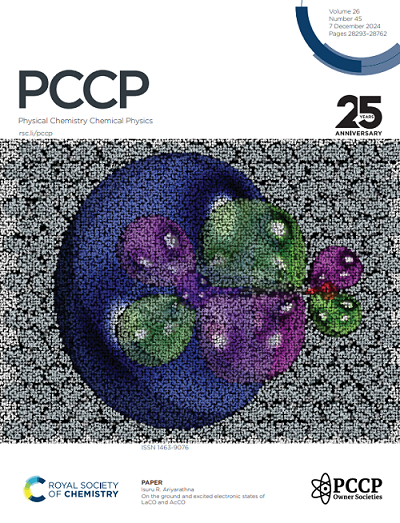Construction of an Artificial-Intelligence Agent for the Discovery of Next-Generation White-LED Phosphors
IF 2.9
3区 化学
Q3 CHEMISTRY, PHYSICAL
引用次数: 0
Abstract
Large language models have been extensively employed for scientific research from different aspects, yet their performance is often limited by gaps in highly specialized knowledge. To bridge this divide, in this Perspective we take phosphor materials for white LED applications as a model system and construct a domain-specific knowledge base that couples Retrieval-Augmented Generation with a numerical-querying Model Context Protocol. By automatically extracting and structuring data from more than 5,400 publications—including chemical compositions, crystallographic parameters, excitation–emission wavelengths, and synthesis conditions—we construct an artificial-intelligence agent that delivers both broad semantic search and exact parameter lookup, each answer accompanied by verifiable references. This hybrid approach mitigates hallucinations, improves recall and precision in expert-level question-answering. Finally, we outline how linking this curated corpus to lightweight machine-learning models and even automated experimental synthesis facilities can close the loop from target specification to experimental validation, offering a blueprint for accelerated materials discovery.用于发现下一代白光led荧光粉的人工智能代理的构建
大型语言模型已广泛应用于科学研究的各个方面,但其性能往往受到高度专业化知识差距的限制。为了弥合这一鸿沟,从这个角度来看,我们将白光LED应用的荧光粉材料作为一个模型系统,并构建了一个特定领域的知识库,该知识库将检索增强生成与数字查询模型上下文协议相结合。通过自动从5400多份出版物中提取和构建数据,包括化学成分、晶体学参数、激发发射波长和合成条件,我们构建了一个人工智能代理,它提供广泛的语义搜索和精确的参数查找,每个答案都伴随着可验证的参考文献。这种混合方法减轻了幻觉,提高了专家级问题回答的记忆力和准确性。最后,我们概述了如何将这个精心策划的语料库与轻量级机器学习模型甚至自动化实验合成设施联系起来,从而实现从目标规格到实验验证的闭环,为加速材料发现提供蓝图。
本文章由计算机程序翻译,如有差异,请以英文原文为准。
求助全文
约1分钟内获得全文
求助全文
来源期刊

Physical Chemistry Chemical Physics
化学-物理:原子、分子和化学物理
CiteScore
5.50
自引率
9.10%
发文量
2675
审稿时长
2.0 months
期刊介绍:
Physical Chemistry Chemical Physics (PCCP) is an international journal co-owned by 19 physical chemistry and physics societies from around the world. This journal publishes original, cutting-edge research in physical chemistry, chemical physics and biophysical chemistry. To be suitable for publication in PCCP, articles must include significant innovation and/or insight into physical chemistry; this is the most important criterion that reviewers and Editors will judge against when evaluating submissions.
The journal has a broad scope and welcomes contributions spanning experiment, theory, computation and data science. Topical coverage includes spectroscopy, dynamics, kinetics, statistical mechanics, thermodynamics, electrochemistry, catalysis, surface science, quantum mechanics, quantum computing and machine learning. Interdisciplinary research areas such as polymers and soft matter, materials, nanoscience, energy, surfaces/interfaces, and biophysical chemistry are welcomed if they demonstrate significant innovation and/or insight into physical chemistry. Joined experimental/theoretical studies are particularly appreciated when complementary and based on up-to-date approaches.
 求助内容:
求助内容: 应助结果提醒方式:
应助结果提醒方式:


